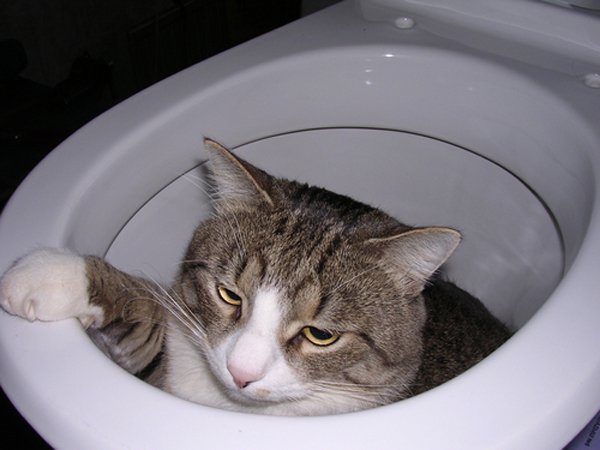This post below about How to Dispose of Cat Poop and Litter Without Plastic Bags is exceptionally insightful. You should check it out.

Intro
As feline owners, it's vital to be mindful of just how we throw away our feline buddies' waste. While it might seem convenient to purge pet cat poop down the bathroom, this practice can have destructive repercussions for both the setting and human health.
Environmental Impact
Purging cat poop presents hazardous virus and bloodsuckers into the supply of water, posturing a significant risk to water environments. These contaminants can negatively affect marine life and compromise water high quality.
Wellness Risks
Along with ecological problems, purging feline waste can also present health threats to humans. Feline feces might contain Toxoplasma gondii, a bloodsucker that can cause toxoplasmosis-- a potentially extreme illness, specifically for pregnant women and people with damaged immune systems.
Alternatives to Flushing
Luckily, there are much safer and much more responsible means to take care of pet cat poop. Consider the adhering to choices:
1. Scoop and Dispose in Trash
The most common approach of throwing away cat poop is to scoop it right into a biodegradable bag and toss it in the trash. Be sure to utilize a devoted clutter scoop and take care of the waste quickly.
2. Usage Biodegradable Litter
Choose eco-friendly cat clutter made from materials such as corn or wheat. These trashes are eco-friendly and can be safely gotten rid of in the garbage.
3. Hide in the Yard
If you have a lawn, take into consideration hiding feline waste in a designated area far from veggie yards and water resources. Make certain to dig deep adequate to stop contamination of groundwater.
4. Install a Pet Waste Disposal System
Invest in a pet waste disposal system especially developed for feline waste. These systems make use of enzymes to break down the waste, decreasing smell and ecological impact.
Final thought
Accountable pet dog ownership extends beyond supplying food and sanctuary-- it additionally involves proper waste management. By refraining from flushing feline poop down the bathroom and selecting alternate disposal techniques, we can lessen our ecological footprint and secure human wellness.
Why You Should Never Flush Cat Poop Down the Toilet
A rose by any other name might smell as sweet, but not all poop is created equal. Toilets, and our sewage systems, are designed for human excrement, not animal waste. It might seem like it couldn’t hurt to toss cat feces into the loo, but it’s not a good idea to flush cat poop in the toilet.
First and foremost, assuming your cat uses a litter box, any waste is going to have litter on it. And even the smallest amount of litter can wreak havoc on plumbing.
Over time, small amounts build up, filling up your septic system. Most litter sold today is clumping; it is made from a type of clay that hardens when it gets wet. Ever tried to scrape old clumps from the bottom of a litter box? You know just how cement-hard it can get!
Now imagine just a small clump of that stuck in your pipes. A simple de-clogger like Drano isn’t going to cut it. And that means it’s going to cost you big time to fix it.
Parasitic Contamination
Believe it or not, your healthy kitty may be harboring a nasty parasite. Only cats excrete Toxoplasma in their feces. Yet it rarely causes serious health issues in the cats that are infected. Most people will be fine too if infected. Only pregnant women and people with compromised immune systems are at risk. (If you’ve ever heard how women who are expecting are excused from litter cleaning duty, Toxoplasma is why.)
But other animals may have a problem if infected with the parasite. And human water treatment systems aren’t designed to handle it. As a result, the systems don’t remove the parasite before discharging wastewater into local waterways. Fish, shellfish, and other marine life — otters in particular — are susceptible to toxoplasma. If exposed, most will end up with brain damage and many will die.
Depending on the species of fish, they may end up on someone’s fish hook and, ultimately on someone’s dinner plate. If that someone has a chronic illness, they’re at risk.
Skip the Toilet Training
We know there are folks out there who like to toilet train their cats. And we give them props, it takes a lot of work. But thanks to the toxoplasma, it’s not a good idea.

As a keen reader on Don’t flush cat feces down the toilet, I think sharing that excerpt was a good idea. Remember to take the time to share this article if you appreciated it. Thanks a lot for your time. Don't forget to stop by our website back soon.
Appointment